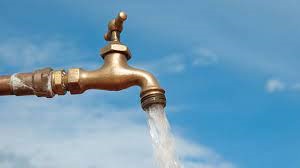28 September, 2025
National Initiative on Water Security
Sat 27 Sep, 2025
Context
- Water security has emerged as one of the most pressing challenges in India, especially in rural areas where agriculture is the mainstay. Recognizing the urgency to address groundwater depletion and rural water scarcity, the Union Government has launched the National Initiative on Water Security under the Mahatma Gandhi National Rural Employment Guarantee Act (MGNREGA), 2005.
- This initiative marks a paradigm shift from isolated water conservation works to systematic, decentralized planning to ensure long-term rural water security.
Why This Initiative Was Needed
- Groundwater Crisis: More than 256 districts in India are facing water stress, with several blocks classified as "over-exploited" by the Central Ground Water Board.
- Agricultural Dependency: About 60% of Indian agriculture is rain-fed and heavily dependent on groundwater for irrigation.
- Climate Change: Irregular monsoon patterns and rising temperatures have worsened water scarcity in rural India.
- Unplanned Usage: Despite earlier water-related schemes, ad hoc and uncoordinated planning often led to underperformance.
Key Features of the National Initiative on Water Security
| Feature | Details |
| Implementation Base | Under MGNREGA, 2005 |
| Statutory Backing | MGNREGA amended to mandate allocation of funds for water conservation |
| Fund Allocation Guidelines | 65% in over-exploited blocks, 40% in semi-critical blocks, 30% even in normal blocks |
| Approach Shift | From short-term water works to long-term, scientifically planned water security models |
| Asset Creation Focus | Farm ponds, check dams, recharge pits, soak pits, percolation tanks etc. |
This strategy ensures that rural employment creation is now directly aligned with climate resilience and natural resource management.
Achievements So Far
- MGNREGA has become the world’s largest public works-based social welfare program, and since inception.
- Under Mission Amrit Sarovar, over 68,000 water bodies have been rejuvenated or newly constructed.
- Initiatives like "Catch the Rain" have mobilized lakhs of volunteers and panchayats for decentralized water harvesting.
Significance of This Initiative
- Rural Water Security: Promotes resilience in agriculture and drinking water availability.
- Climate Adaptation: Reduces dependence on erratic monsoons.
- Sustainable Employment: Water conservation work ensures productive job generation under MGNREGA.
- Ecological Balance: Encourages groundwater recharge and improves biodiversity.
Challenges Ahead
- Monitoring and Quality: Ensuring quality construction of water assets at the local level.
- Capacity Building: Training of gram panchayats and block officials in scientific planning.
- Convergence: Aligning this initiative with Jal Shakti Abhiyan, PMKSY and state-level water missions.
Way Forward
- Geo-tagging of assets and real-time monitoring through digital dashboards.
- Involvement of Hydrologists and NGOs in micro watershed planning.
- Community Participation in planning, implementation and maintenance of water assets.
Government Schemes for Water Conservation
| Scheme / Initiative | Year | Implementing Ministry | Key Objective |
| MGNREGA (Water Focused Assets) | 2005 (amended in 2024) | Ministry of Rural Development | Rural employment linked to water conservation |
| Jal Shakti Abhiyan | 2019 | Ministry of Jal Shakti | Campaign for water conservation in water-stressed blocks |
| Mission Amrit Sarovar | 2022 | MoRD & Jal Shakti | Creation of 75 water bodies per district for 75 years of independence |
| Atal Bhujal Yojana | 2019 | Ministry of Jal Shakti (with World Bank) | Groundwater management in 7 water-stressed states |
| PM Krishi Sinchayi Yojana (PMKSY) | 2015 | Ministry of Agriculture | “Har Khet Ko Pani” – ensuring irrigation access to all fields |
| Catch the Rain Campaign | 2021 | Ministry of Jal Shakti | Rainwater harvesting across India with slogan “Catch the Rain, where it falls, when it falls” |
| Swachh Bharat Mission (Greywater Management) | 2014 (rural component) | Ministry of Jal Shakti | Reuse of household wastewater in rural areas for irrigation & recharge |
Conclusion
- The National Initiative on Water Security represents India’s integrated, employment-linked, and decentralized approach to managing one of its most critical natural resources – water. By embedding water conservation within the legal framework of MGNREGA, the government is ensuring that livelihood security and water sustainability go hand in hand.


















